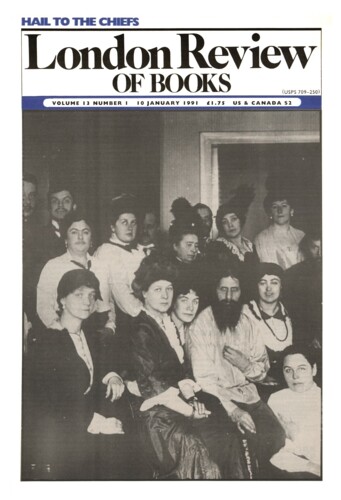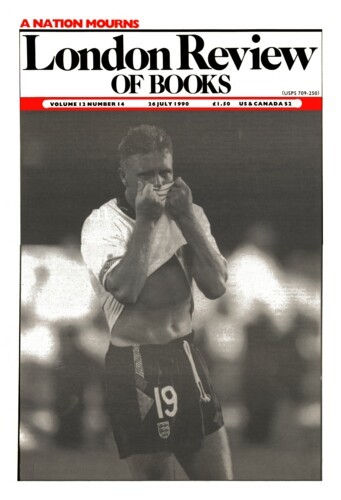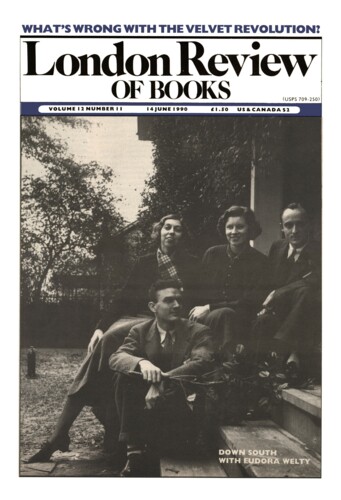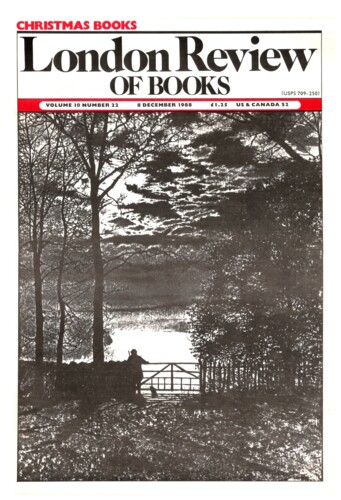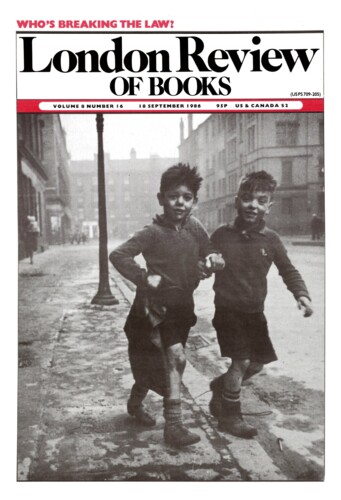Poem: ‘A Perversion’
Christopher Reid, 10 January 1991
In the Proceedings of the Royal Institute of Anthropophagy (last year’s Spring number, page 132), there is a most unusual instance recorded of a man and woman who conspired to eat each other – and would have done so, had not the laws of nature prevented it. I heartily agree with the writer of the article who denounces the whole affair as a ‘flagrant travesty’, a...
